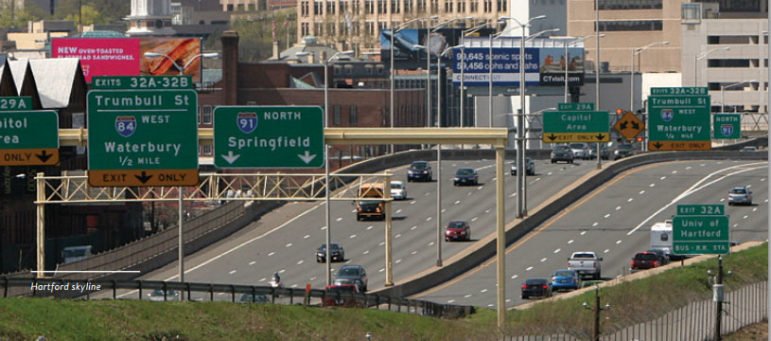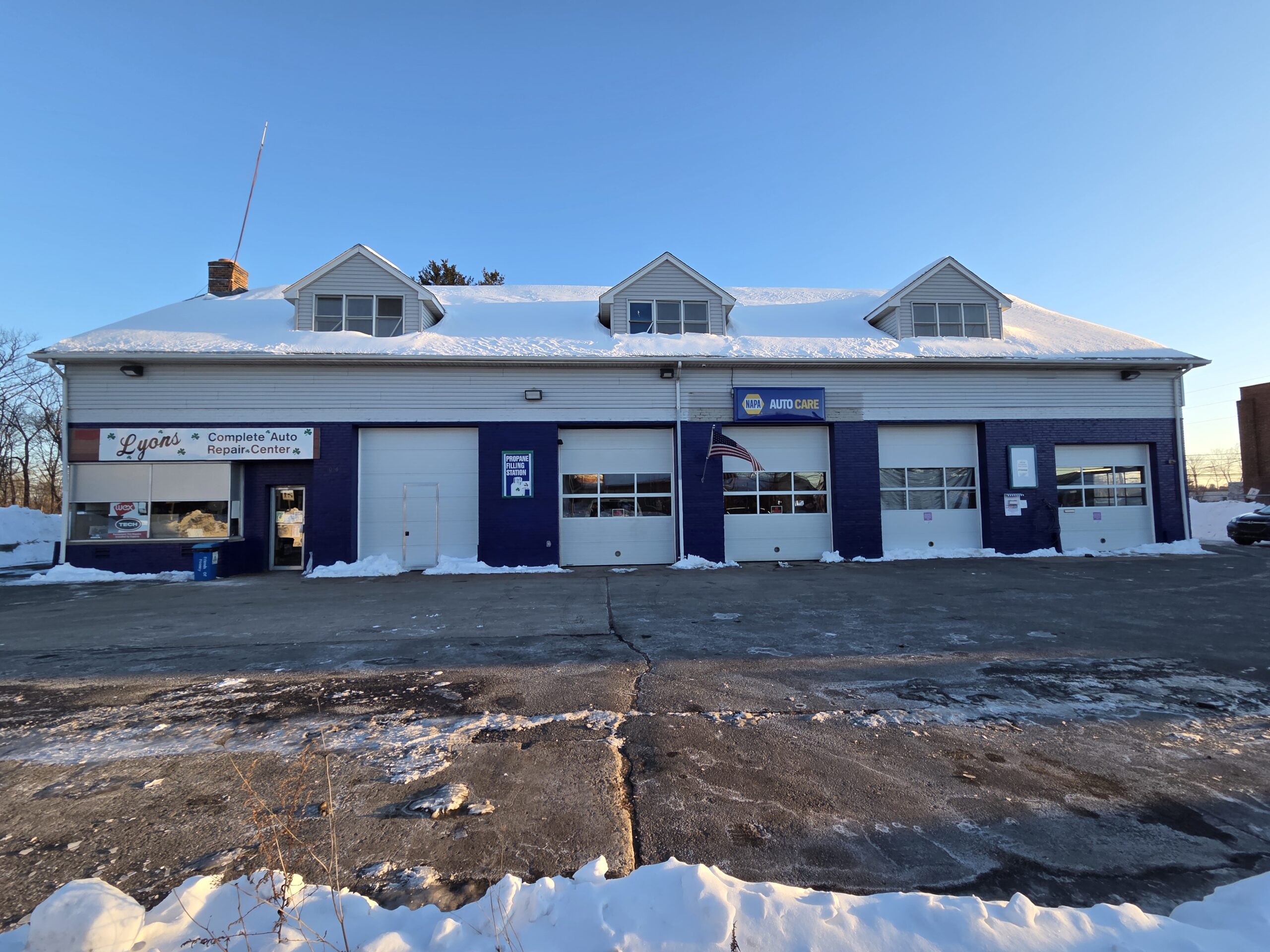Lawmakers Running Out of Time to Find New Transportation Funding Plan

Audio By Carbonatix

Interstate 91 approaching Hartford. Courtesy of CTMirror.org
Proposals by the legislature’s Appropriations Committee and the Finance, Revenue and Bonding Committee don’t match up when it comes to transportation, and would leave a deficit of nearly $11.5 million in the Special Transportation Fund.
By Keith M. Phaneuf, CTMirror.org
With less than a month left until adjournment, state lawmakers are no closer – at least on paper – to charting a new course for Connecticut’s overburdened, decaying transportation system.
Though somewhat dysfunctional by design, the legislature’s latest budget proposals – which don’t feature tolls – would leave the Special Transportation Fund nearly $11.5 million in deficit by 2021, according to a new, nonpartisan analysis.
And while Democratic Gov. Ned Lamont continues to rally support for electronic tolling on the state’s major highways, Republican minorities in the House and Senate are pressing equally hard for a non-toll alternative that relies exclusively on borrowing.
“I think everybody realizes there is a level of punting that’s going on,” House Minority Leader Vincent J. Candelora, R-North Branford, said Monday, referring to separate Democratic proposals for transportation spending and revenue adopted last week that are out of balance.
The Appropriations Committee, which recommends spending levels, proposed a $1.7 billion transportation fund for the fiscal year that begins July 1, and a $1.81 billion fund for 2020-21. These totals effectively match the spending Lamont recommended.
The Finance, Revenue and Bonding Committee – as its name implies – recommends the other half of the budget: how much money should be raised, and by what means.
But the finance committee opted not to endorse a series of motor vehicle fee increases the governor recommended for 2020-21, setting up the potential deficit the nonpartisan Office of Fiscal Analysis identified Monday.
The Appropriations and Finance committees aren’t required to ensure their respective spending and revenue plans match up, and often they don’t.
But given the approaching June 5 session adjournment date, and the transportation crisis Connecticut is facing, the numbers need to add up, Candelora said.
“I don’t think anybody takes that (committee budget) process seriously at all,” he said. “We as a legislature have a long way to go.”
“At least we’re working on something,” countered Rep. Jason Rojas, D-East Hartford, House chairman of the Finance, Revenue and Bonding Committee.
Rojas noted that Republicans, for the first time in more than a decade, have not proposed an overall state budget. Having a GOP transportation plan, without defining the other spending cuts or revenue increases needed to keep state finances in balance, is context you simply can’t skip, he said.
“If you’re not interested in engaging, in putting something forth, it’s fairly disingenuous to criticize,” Rojas added.
The challenge facing legislators and Lamont is two-fold.
Firstly, transportation officials have been warning for years that Connecticut is barely spending enough money to maintain the average condition of its aging highways, bridges, and railways. That means strategic initiatives to ease congestion, and speed up travel times are stuck in fiscal limbo.
Secondly, even with the treading-water approach to the transportation capital program, Connecticut’s transportation budget is headed for its own crisis.
Analysts say the budget’s Special Transportation Fund is headed for insolvency, absent new revenues, at some point in the mid-to-late 2020s.
Lamont has proposed electronic tolling on Interstates 84, 91, and 95 and on the Merritt Parkway.
But toll receipts wouldn’t be available until 2024 or 2025 and the governor, who is trying to close major projected deficits in the budget’s General Fund, also wants to cancel a major transfer of sales tax revenues from the General Fund into the transportation program.
Republicans have said tolls can be avoided if legislators redirect hundreds of millions of dollars in borrowing earmarked annually for schools and other non-transportation initiatives and use it for roads, bridges, and rail lines.
But while this would buy the transportation program more time, it still is headed for insolvency, absent new revenues, by the late 2020s.
The finance committee did raise an electronic tolling bill for consideration, but opted not to vote on it before the committee deadline passed last Thursday.
Sen. John Fonfara, D-Hartford, the other co-chair of the Democrat-controlled finance panel, said last week that the tolls bill wasn’t ready for a vote.
“The public deserves to know what it would cost, not only to keep our infrastructure system on a steady course and run it as efficiently as possible, but also to to make the major infrastructure improvements that we need,” he said.
Legislators have said they are awaiting new details from the governor on his tolling plan, including whether some borrowing earmarked for non-transportation programs could be diverted for a few years for road, bridge, and rail work until toll receipts become available.
Reprinted with permission of The Connecticut Mirror. The author can be reached at [email protected].
Like what you see here? Click here to subscribe to We-Ha’s newsletter so you’ll always be in the know about what’s happening in West Hartford!



